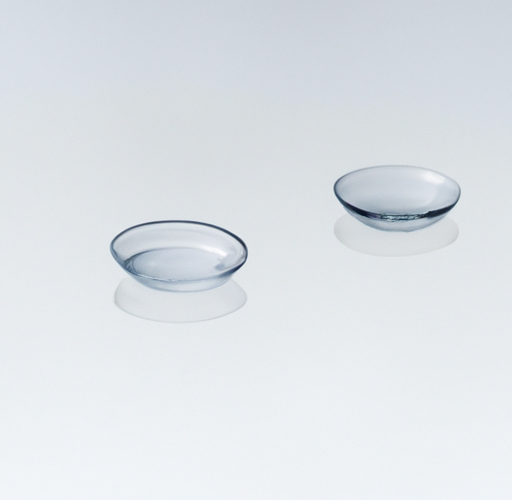As a contact lens wearer, it’s important to find the right lens for your lifestyle. With so many options available, it can be overwhelming to choose the right one. But have you considered daily wear contact lenses? They come with some fantastic benefits that might just make them the perfect fit for you.
Comfort
One of the most significant benefits of daily wear contact lenses is how comfortable they are. Thanks to their thin and soft material, they conform to your eye’s shape for a perfect fit. Unlike other types of contacts that may need adjusting during the day, daily wears will stay in place without causing irritation or discomfort. Plus, you won’t have to worry about cleaning and storing them every night, leaving your eyes feeling fresh and ready to go.
Hygiene
Daily wear contact lenses offer superior hygiene benefits. Wearing the same pair of contacts for weeks on end means they can build up dirt and bacteria, leading to infections. By contrast, daily wears are always fresh out of the box. Since you only wear them for a day, there is no time for any buildup, making them incredibly safe for your eyes.
Freedom
Daily wear contacts allow you more freedom in your daily life. They’re fantastic for people who have active and busy lifestyles. You can easily throw a few pairs in your bag, and if needed, change them on the go. It’s a hassle-free and worry-free way to correct your vision without interfering in other aspects of your life.
Variety
Daily wear contact lenses come in a variety of options for those with different eye conditions. Whether you’re nearsighted, farsighted, or have astigmatism, there is a daily wear lens available to suit your specific needs. They’re also available in colored lenses to help you make a fashion statement and mix things up a little.
Budget-friendly
Although daily wear contacts might seem slightly more expensive initially, they end up being cost-effective in the long run. You’ll save money on contact lens solution and storage containers. Plus, since they only last one day, you don’t have to worry about replacing them or losing them. It may initially seem expensive, but over time, you’ll end up saving.
Conclusion
Daily wear contact lenses offer some fantastic benefits, including comfort, hygiene, freedom, variety, and cost-effectiveness. They’re a perfect replacement for traditional contact lenses, particularly if you have an active lifestyle and need an easy and worry-free solution. So, why not give daily wear lenses a try and see for yourself how great they can be? Remember to always consult with your optometrist before making any changes to your eye care routine. They can help determine if daily wear contact lenses are the best option for your specific needs.
“How do I know if daily wear contact lenses are right for me?”
I do not have personal preferences but I can provide some general information on daily wear contact lenses.
1. Consult with an eye care professional: The first step in determining if daily wear contact lenses are right for you is to consult with an eye care professional. They can evaluate your eyes and help you determine the best type of contact lenses for your needs.
2. Lifestyle: Consider your lifestyle and daily routine. Daily wear contact lenses are ideal for people who lead active lifestyles and do not want to hassle with daily cleaning and maintenance.
3. Comfort: Daily wear contact lenses are typically made from soft, breathable materials that are comfortable to wear for extended periods. However, some people may have sensitivities or allergies to certain types of contact lens materials.
4. Cost: Daily wear contact lenses can be more expensive than other types of lenses, such as weekly or monthly disposables. However, the cost may be worth it for the convenience and comfort they provide.
5. Prescription: Your eye care professional will also consider your vision prescription when determining if daily wear contact lenses are right for you. Certain prescriptions may not be suitable for daily wear lenses.
Overall, the decision to wear daily contact lenses is a personal one that should be made in consultation with an eye care professional.

